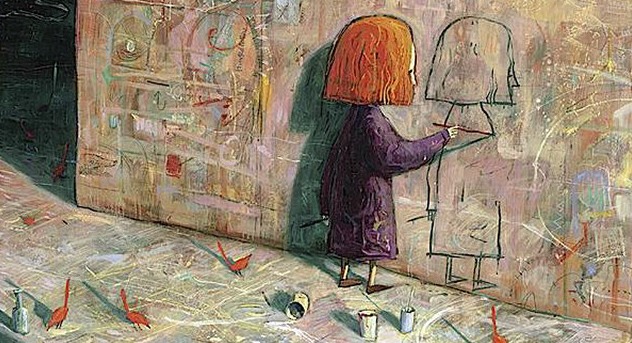Last week I was working with a group of leaders in a session where they were practicing giving real-time feedback to each other. And not just any feedback: they were focused on giving feedback on the perceived strengths of the other person.
In debriefing the activity, I was surprised how many people in the group, both men and women, found it uncomfortable to receive that type of feedback. “I find it much easier to hear the things that I could improve” was a common comment. It appeared that these people didn’t want to know how good they were. Someone even said, “I’m afraid my head will get too big if I take all of that good stuff on board”.
I challenged them to think differently. After all, there’s a plethora of research out there that shows the most effective leaders own, and play to, their strengths. I created a virtual spectrum on the floor in the middle of the group. I called one end ‘Arrogance’ and the other ‘Ignorance’.
I said that I reckon too many people are so afraid of being seen to be up at the ‘Arrogance’ end that they rush to the other end instead, and don’t want to know about the gifts they possess. And I reckon that’s a wasted opportunity.
Then I went and stood in the middle. I called that place ‘Curious Confidence’. That place where you own your good stuff, and at the same time you’re always curious about how you can be improving. It’s a healthy self-esteem blended with a clear understanding that you can always improve.

We discussed how to be more in the middle, more of the time. Here’s what we came up with:
- Say thank you. When someone gives you a compliment, you don’t need to defend against it and try to be in Ignorance. Just respond with a simple “thank you”. Try it, and notice the shift in your inner state towards a Curious Confidence.
- Ask for specifics. Whenever someone gives me a compliment about the work I’ve been doing with them, I’ll try to understand more about what led them to say it. I’ll often ask “what was it about what I did that you liked?” or “what difference do you think that made?”. The more I understand the specifics, the more I have to work with and perhaps use in the future.
- Write it down. We’re more likely to remember things when we write them down. And it helps us process them further. So rather than let a compliment drift off into the ether, keep a journal that you can refer back to from time to time. You’ll notice patterns emerge from the tapestry of compliments you receive over time.
One thing not to do. Don’t feel the need to immediately respond with a compliment. Unless it’s genuine and relevant, it’ll land flat. Act like it’s your birthday. It’s your time in the light. Accept the gift you’re being given graciously. Soon enough, it’ll be their ‘birthday’ and you can reciprocate.
I’ve noticed that as I’ve learned to be more in a state of ‘Curious Confidence’, I’m more grounded. I get less fazed by new and challenging situations because I’ve built a base of self-confidence that I can draw on. I’m burning less energy and time on self-doubt and rumination. And life is better for it. Do I have the ‘Arrogance Monster’ whispering in my ear from time to time? You bet. And that’s a good thing. But I’ve learned to stay in the healthy middle and avoid the run towards Ignorance.
So, next time you are given a compliment, how will you respond?
Picture: From ‘The Red Tree’ by Shaun Tan
Like this post? You’re only getting half the story. Sign up to my ‘Fresh Thinking’ newsletter, delivered monthly to your inbox.
Are you a Change Maker? Learn more about my Change Makers programme, including next intake dates.


